Simple Gimpl: The Definitive Bilingual Edition
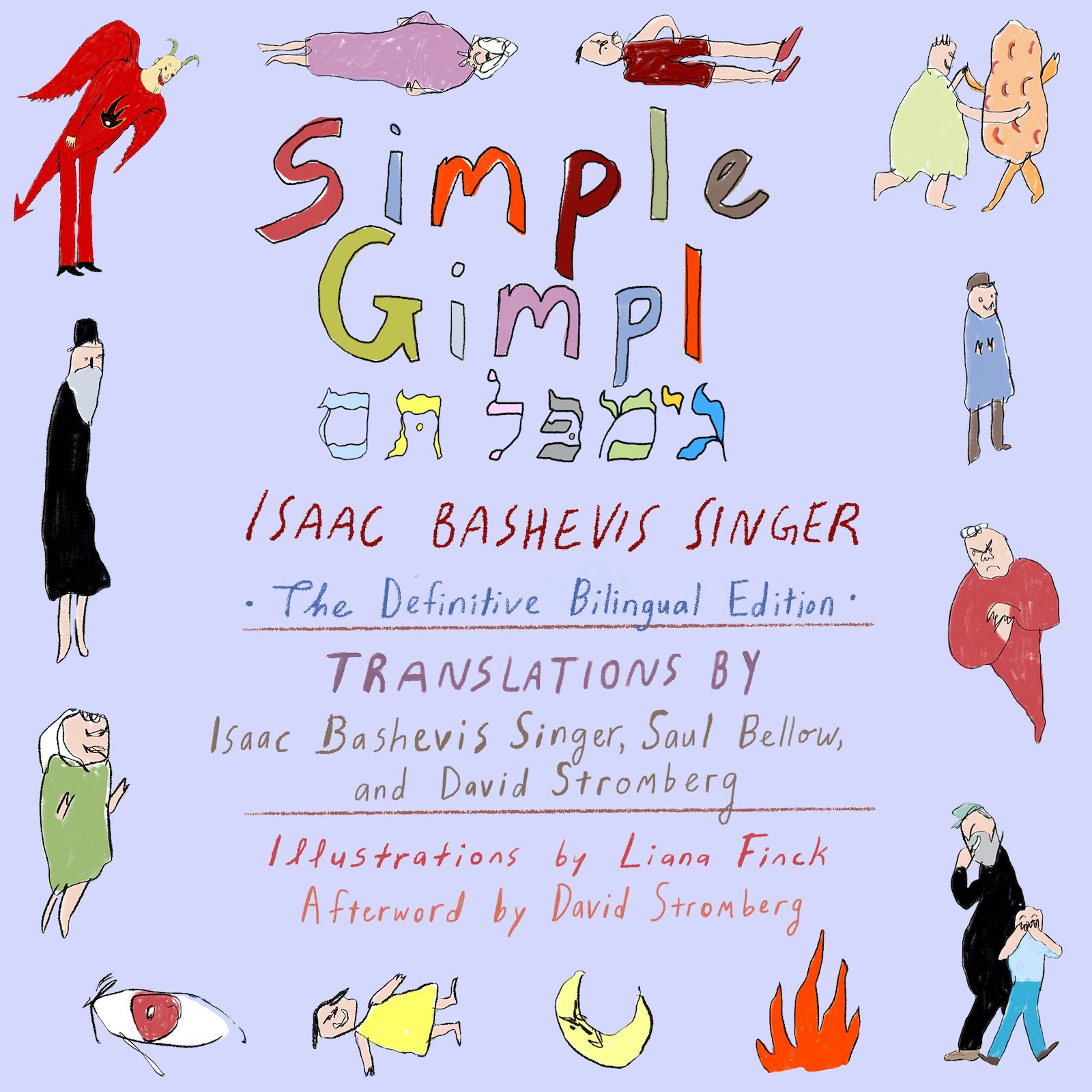

Simple Gimpl: The Definitive Bilingual Edition
by Isaac Bashevis Singer
Translated from the Yiddish by Saul Bellow, Isaac Bashevis Singer, and David Stromberg
Illustrations by Liana Finck
Afterword by David Stromberg
A gorgeously produced, bilingual edition of Nobel Prize laureate Isaac Bashevis Singer's canonical story—one of the most influential of the 20th century—about a hapless yet charmingly resilient baker named Gimpl, who resists taking revenge on the town that makes him the butt of every joke. Singer's original Yiddish appears alongside his own partial translation, now completed and edited by writer and scholar David Stromberg, and the 1953 translation by fellow Nobel laureate Saul Bellow. With illustrations by Liana Finck and an afterword by David Stromberg.
Hardcover ISBN: 9781632060389
Publication date: March 14, 2023
Other buying options:
Amazon | Barnes & Noble | Google | Kobo
About the Book
Isaac Bashevis Singer’s “Gimpl tam” was published on March 30, 1945, in the obscure Yiddish-language journal Idisher kempfer, about a month before the Nazi surrender. A story of bullying and the potential for revenge, it tells the deathbed confession of an orphaned baker who is targeted by his own community for ridicule and practical jokes. Gimpl has come to be seen as a symbol of the Jewish people in the diaspora, and, by synecdoche, minorities in general. Should they be passive in the face of aggression? Or should they defend themselves? What role must the individual of that minority play when the pack behaves badly?
When Irving Howe and Eliezer Greenberg opted to include “Gimpl tam” in their Treasury of Yiddish Tales, Howe asked Saul Bellow to help with the translation. It was finished in a single sitting and published in 1953 in The Partisan Review as “Gimpel the Fool”—the version that has since been canonized as one of the fundamental stories of the twentieth century. Yet, unlike every other major work of Singer’s published in his lifetime, the author had no involvement in the English translation. In 2006, Joseph Landis, editor of Yiddish, published a draft play script titled “Simple Gimpl,” made by Singer directly from the Yiddish original—the closest extant rendition of the story in the author’s own translation. Literary scholar David Stromberg has completed Singer’s translation, allowing readers to see another dimension of the original. This definitive edition, a treat for literature lovers, features Singer’s story in Yiddish along with the two English versions. Having them together shows Gimpl as anything but a fool—but rather someone accepting the complexity of his life and faith.
View the Illustrations
Praise for simple gimpl:
“On its own, the story is magnificent: a little jewel cut with a manic humor. But the real value of this volume is in laying the two translations side by side and comparing the different flavor each one lends to Singer's prose…Beautifully printed and presented, this new edition is a gift to readers and scholars alike.”
—Kirkus Reviews, Starred Review
“The narrative in Simple Gimpl is slow-moving, reflective, and witty. It is an undeniable pleasure to read—and certainly not difficult to read multiple times in a row, as this edition of the book incites the reader to do. . . . Over the course of more than one hundred pages, one must realize that this is not a book about Gimpl, and not even about the differences between Saul Bellow’s Gimpel and Isaac Bashevis Singer’s Gimpl. It is about the role of the translator; it is about the strange impossibility of rendering a story.”
—Rachel Landau, Asymptote
Praise for Isaac Bashevis Singer:
“Singer’s stories have plots that unravel not because they are old-fashioned—they are mostly originals and have few recognizable modes other than their own—but because they contain the whole human world of affliction, error, quagmire, pain, calamity, catastrophe, woe: things happen; life is an ambush, a snare; one’s fate can never be predicted. His driven, mercurial processions of predicaments and transmogrifications are limitless, a cornucopia of invention.”
—Cynthia Ozick
“[Singer] is a spellbinder as clever as Scheherazade; he arrests the reader at once, transports him to a far place and a far, improbable time and does not let him go until the end.”
—Jean Stafford, The New Republic
“A peerless storyteller, Singer restores the sheer enchantment with story, with outcome, with what-happens-next that has been denied most readers since their adolescence.”
—David Boroff, Saturday Review
“Singer is a genius. He has total command of his imagined world.”
—Irving Howe, The New Republic
“Extraordinarily beautiful… It's the integrity of the human imagination that Singer conveys so beautifully.”
—Alfred Kazin, The New Leader
"[Singer’s]... impassioned narrative art… with roots in a Polish-Jewish cultural tradition, brings universal human conditions to life."
—The Nobel Prize Committee, 1978
“To me, Stromberg-Singer’s Gimpl sounds more playful and joyous than Bellow-Singer’s holy fool. I would never abandon Bellow’s classic translation, which is the result of a unique and fortuitous moment in literary history in which two Jewish Nobel laureates both did and did not collaborate, but Stromberg never suggests that we must do so. His edition is “definitive” precisely in declining to make such demands.
With regard to this question and much else, we would do well to recall Gimpl’s own words: “Of course the world is a world of lies. But it’s one step from the true world.””
—Julian Levinson, Jewish Review of Books
About the Author
Isaac Bashevis Singer (1903–1991) was awarded the Nobel Prize for Literature in 1978. An immigrant from Poland, he arrived in New York following the steps of his older brother, Israel Joshua Singer. He wrote essays, stories, and other writings for the Forverts, at times under pseudonym. For years Singer published his stories in The New Yorker, where he developed a distinct style. His work has been translated into dozens of languages.
About the Translators
Saul Bellow (1915 - 2005) was born of Russian Jewish parents in Lachine, Quebec, and was raised in Chicago. He received his bachelor’s degree from Northwestern University in 1937. His novel The Adventures of Augie March won the National Book Award for fiction in 1954. His further awards include the Pulitzer Prize for Humboldt’s Gift (1975); the International Literary Prize for Herzog, for which he became the first American recipient; and the Croix de Chevalier des Arts et Lettres, the highest literary distinction awarded by France to non-citizens. In 1976, Bellow was awarded the Nobel Prize for Literature.

David Stromberg, a writer, translator, and literary scholar, is editor for the Isaac Bashevis Singer Literary Trust. His books include Baddies, Idiot Love and the Elements of Intimacy, and A Short Inquiry into the End of the World. He is the editor of Old Truths and New Clichés: Essays by Isaac Bashevis Singer (Princeton, 2022).
About the Illustrator
Liana Finck is a regular contributor to The New Yorker, The Awl, and Catapult. She is a recipient of a Fulbright Fellowship, a New York Foundation for the Arts Fellowship, and a Six Points Fellowship for Emerging Jewish Artists. She has had artist residencies with the MacDowell Colony, Yaddo, the Lower Manhattan Cultural Council, and Tablet magazine. Her first book, A Bintel Brief, was published in 2014.
BOOK DETAILS
Hardcover: $22
ISBN: 9781632060389
eBook ISBN: 9781632060624
Publication date: March 14, 2023
6” x 6” • 96 pages
Fiction: Yiddish / Jewish / Classics
Rights: World English, World Yiddish, Audio




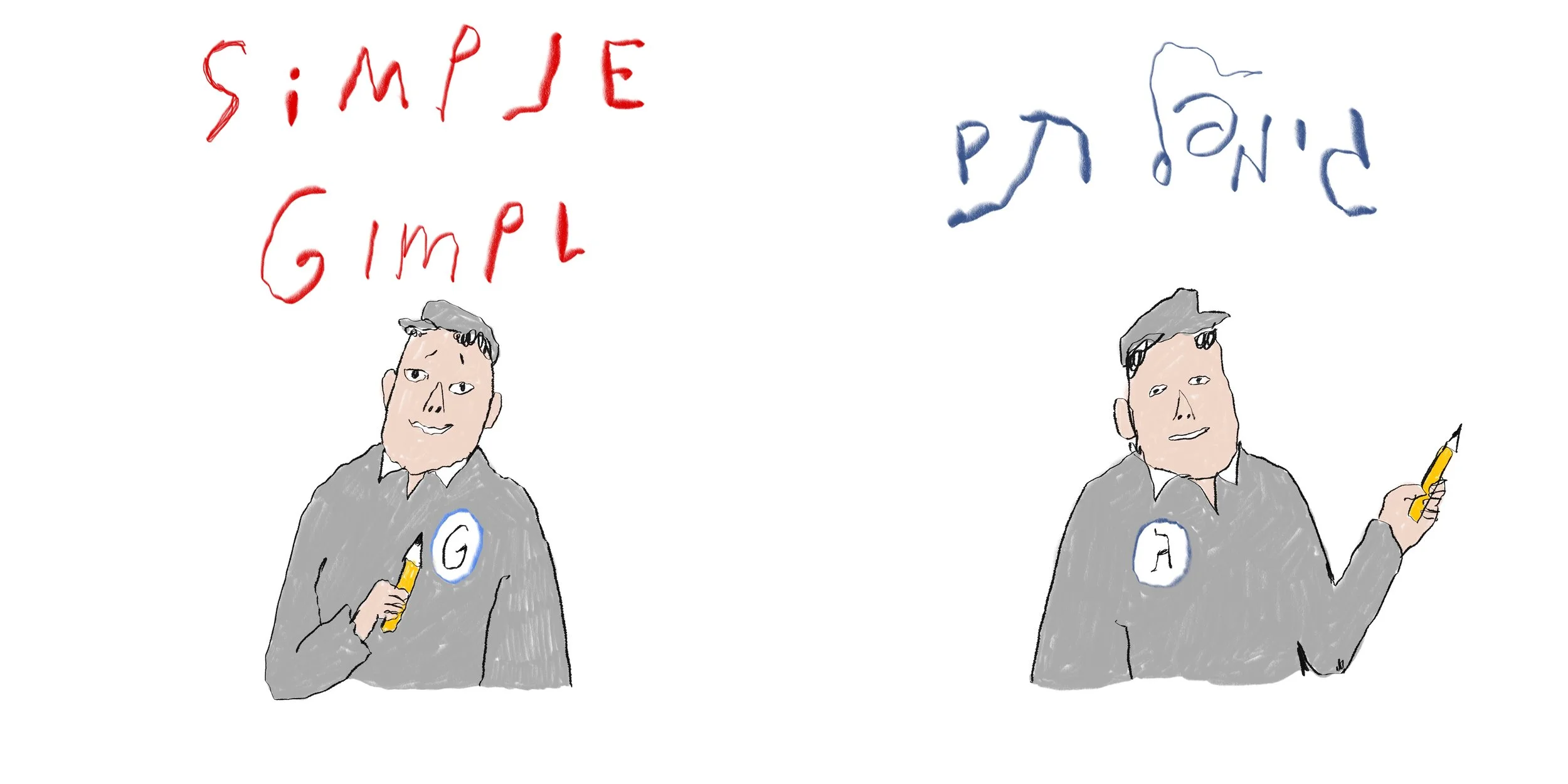
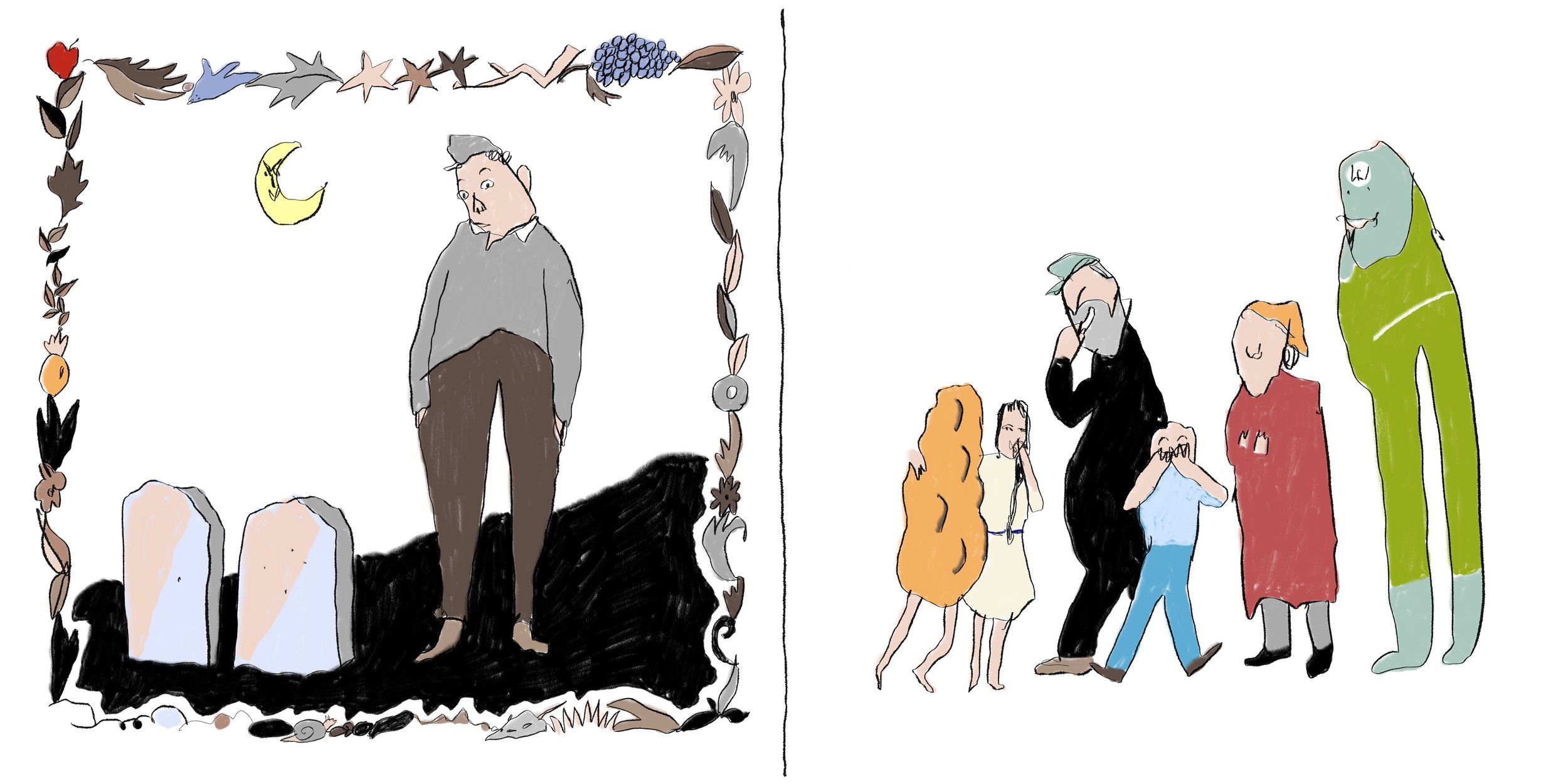


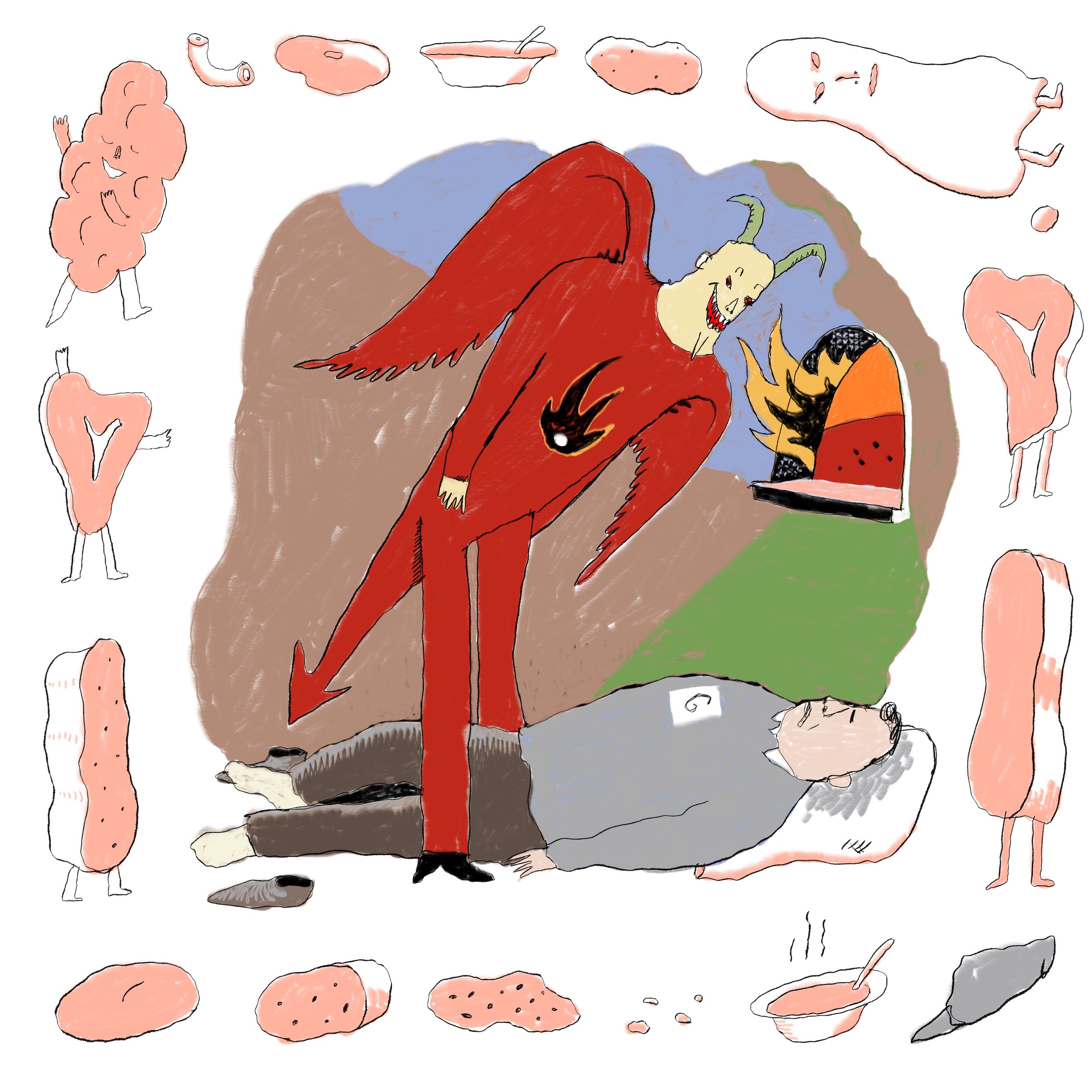







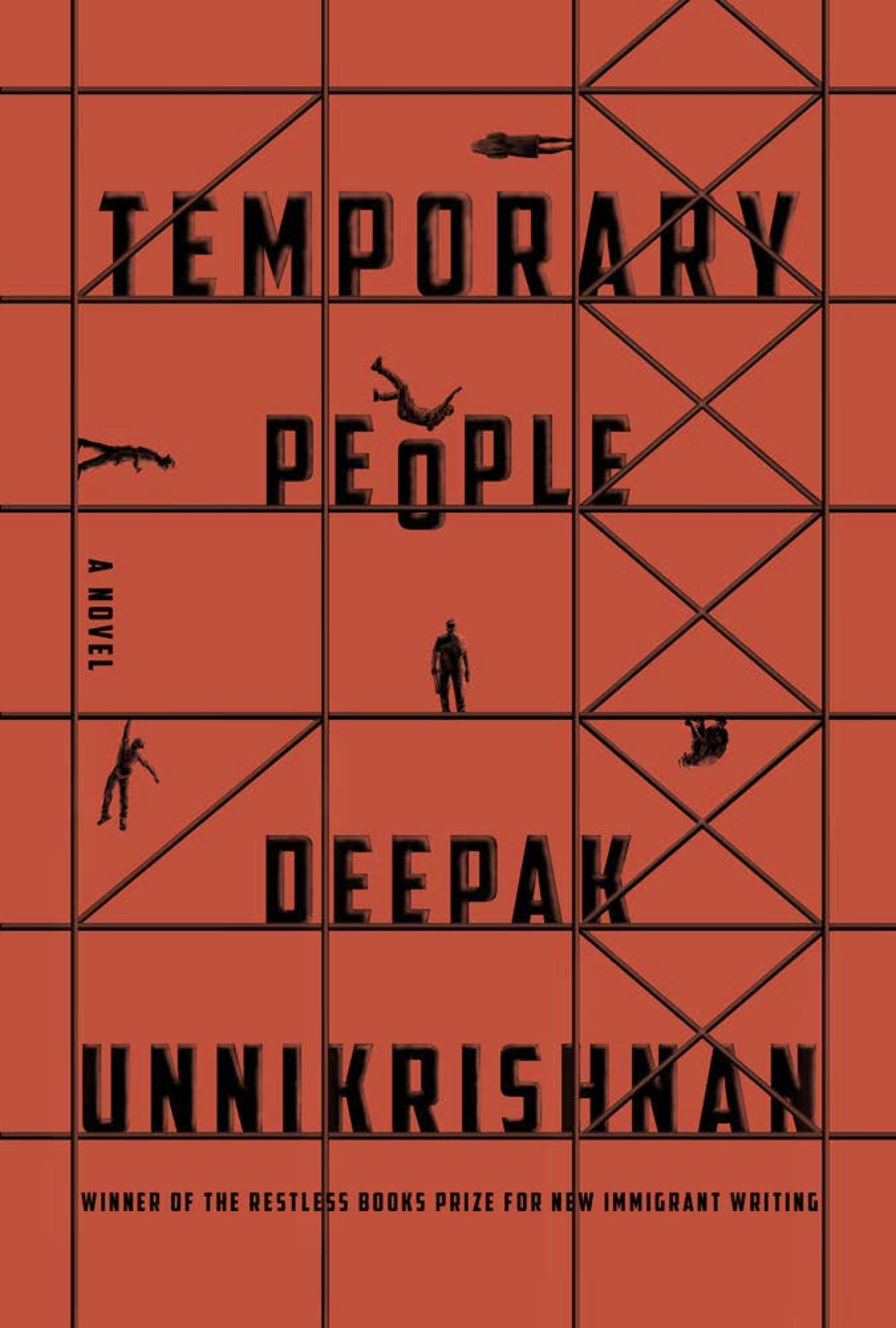
by Isaac Bashevis Singer
Translated from the Yiddish by Saul Bellow, Isaac Bashevis Singer, and David Stromberg
Illustrations by Liana Finck
Afterword by David Stromberg
A gorgeously produced, bilingual edition of Nobel Prize laureate Isaac Bashevis Singer's canonical story—one of the most influential of the 20th century—about a hapless yet charmingly resilient baker named Gimpl, who resists taking revenge on the town that makes him the butt of every joke. Singer's original Yiddish appears alongside his own partial translation, now completed and edited by writer and scholar David Stromberg, and the 1953 translation by fellow Nobel laureate Saul Bellow. With illustrations by Liana Finck and an afterword by David Stromberg.
Hardcover ISBN: 9781632060389
Publication date: March 14, 2023